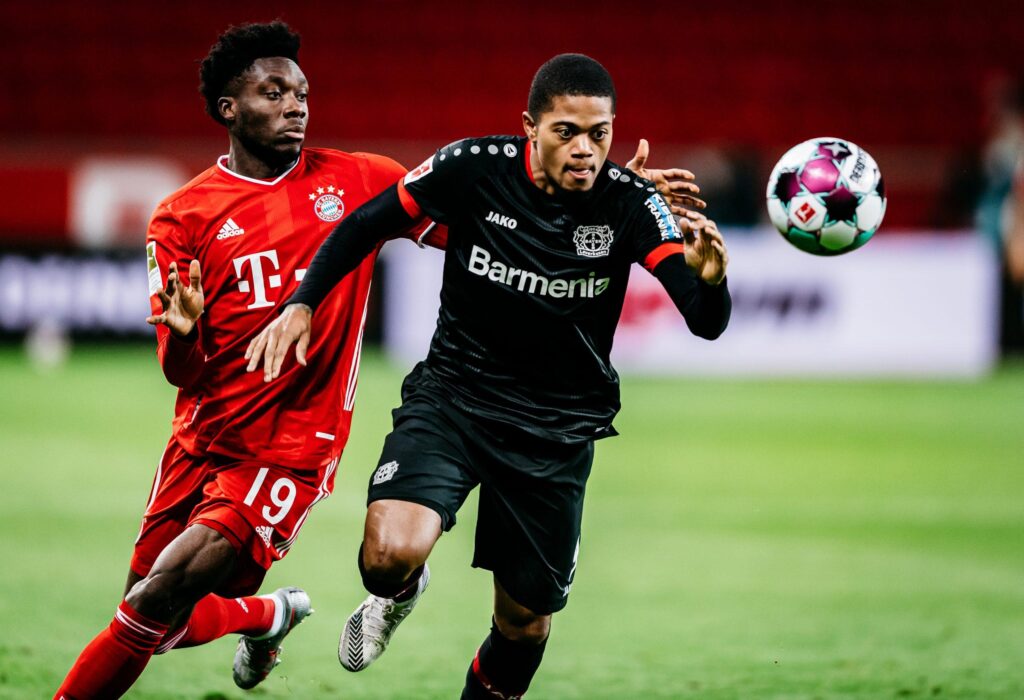As the world of football continues to evolve into a global spectacle, the Bundesliga stands at the forefront of strategic adaptation within the sport. Renowned for its passionate fan culture, competitive spirit, and commitment to youth development, Germany’s premier football league is not only a national treasure but also a burgeoning player on the international stage. In an era marked by technological advancements, shifting viewer preferences, and an increasingly interconnected audience, the Bundesliga has undertaken a series of innovative measures to enhance its global brand and attract a diverse fanbase. This article examines how the league is navigating the complexities of global football dynamics by leveraging digital platforms, fostering international partnerships, and cultivating a unique identity that resonates beyond borders. As the Bundesliga continues to strategically position itself amid fierce competition from other leagues, its evolution offers critical insights into the future of football in an increasingly globalized world.
Table of Contents
- Global Competitiveness of Bundesliga: Embracing International Partnerships
- Digital innovation: Enhancing Fan Engagement and Expanding Global Reach
- Youth Development Strategies: Nurturing Talent to Compete on World Stage
- Sustainability Initiatives: Positioning Bundesliga as a Leader in Responsible Football
- In Retrospect
Global Competitiveness of Bundesliga: Embracing International Partnerships
The Bundesliga’s focus on enhancing its global competitiveness has lead to the formation of international partnerships that serve to expand its reach and influence. By collaborating with clubs, leagues, and football organizations around the world, the Bundesliga is not only promoting its brand but also enriching its own competitive landscape. These strategic alliances are characterized by:
- player exchange Programs: Facilitating talent development and scouting opportunities between leagues.
- Shared Infrastructure Development: Collaborating on training facilities and youth academies, fostering global talent.
- Joint Marketing Initiatives: Leveraging joint promotions to enhance visibility and engagement in diverse markets.
- Knowledge Transfer: Sharing best practices in coaching, management, and operational efficiencies.
Furthermore, these partnerships have prompted Bundesliga clubs to embark on pre-season tours and competitive friendlies across various continents, creating a showcase for German football that resonates internationally. To illustrate the growing international footprint of the Bundesliga, the following table highlights selected international partner clubs and key initiatives:
| International Partner Club | Initiative | Region |
|---|---|---|
| PSG | Joint youth Development Workshops | Europe |
| Shanghai SIPG | Player Exchange program | Asia |
| Los Angeles Galaxy | Pre-Season Pleasant Matches | North America |
| Club América | Marketing and Sponsorship Initiatives | Latin America |
Digital Innovation: Enhancing Fan Engagement and Expanding Global Reach
The Bundesliga has embraced a myriad of digital tools and platforms to captivate fans both on and off the pitch. By leveraging advanced technologies such as augmented reality (AR) and virtual reality (VR), clubs are enhancing match-day experiences and providing fans with immersive opportunities that were previously unimaginable. Key initiatives include:
- Interactive Mobile Apps: Clubs are developing apps that offer real-time stats, live updates, and behind-the-scenes content to keep fans engaged.
- Social Media Campaigns: The use of platforms like TikTok and instagram enables teams to connect with younger audiences,sharing highlights and exclusive content.
- Virtual Match Experiences: Fans unable to attend live games can participate via VR, experiencing a virtual stadium atmosphere from home.
Moreover,the Bundesliga’s strategic partnerships with global tech firms are aiding its expansion into new markets,capitalizing on the sport’s worldwide appeal. By focusing on creating localized content, clubs are reaching a wider audience. Such as, the integration of multilingual broadcasts has allowed fans from varying backgrounds to enjoy matches in their preferred languages. The league is also exploring innovative monetization strategies, including:
| Monetization Strategy | Description |
|---|---|
| Streaming Services | Leveraging platforms to broadcast matches worldwide, increasing access and fan subscriptions. |
| Exclusive Merchandise | Offering limited edition items through online sales, tapping into global fan bases. |
| Content Subscription Models | Creating premium content that fans can access for a fee,enhancing engagement and revenue. |
Youth Development Strategies: Nurturing Talent to Compete on World stage
In response to the increasingly competitive landscape of global football, Bundesliga clubs have recognized the importance of proactively investing in youth development.By implementing innovative training programs and fostering collaborative partnerships with schools and local communities, these clubs are laying the groundwork for the next generation of talent.Key strategies include:
- Investment in Scouting Networks: Establishing robust scouting systems to identify young players with potential across the globe.
- Partnerships with Academies: Collaborating with football academies worldwide to shared resources and knowledge.
- Enhanced Training Facilities: Upgrading facilities to provide state-of-the-art training environments for youth players.
This structured approach not only nurtures local talent but also aims to elevate the overall quality of the league. Clubs are embracing a data-driven methodology to analyze player performance and progression, ensuring that young athletes receive tailored coaching to meet their unique needs.The commitment to youth development is underscored by the successful integration of young players into first-team squads, reflecting a enduring model that could give Bundesliga teams a competitive edge in European tournaments.Below is a table showcasing the success rate of youth academy graduates who have transitioned to professional play:
| Club | Players Graduated | Players in first Team | Success Rate (%) |
|---|---|---|---|
| Bayern Munich | 15 | 10 | 66 |
| Borussia Dortmund | 20 | 12 | 60 |
| RB leipzig | 10 | 6 | 60 |
Sustainability Initiatives: Positioning Bundesliga as a Leader in Responsible Football
The bundesliga is taking important strides to redefine football’s impact on society and the surroundings. With an increasing global focus on sustainability, the league has implemented various initiatives aimed at reducing carbon footprints and promoting eco-friendly practices. Notable actions include:
- Green stadium Initiatives: Many clubs are adopting renewable energy sources, such as solar panels and wind turbines, to power their stadiums.
- Sustainable Transport Solutions: The league encourages fans to use public transport, providing incentives for those who travel by train or bus to matches.
- Waste minimization Programs: Clubs are actively engaging in recycling campaigns, reducing single-use plastics, and implementing composting systems.
In recognition of these efforts, the Bundesliga aims to become a benchmark for responsible sporting practices worldwide. The league has set aspiring yet achievable goals, with the intention of becoming carbon neutral by 2045. To monitor progress and increase openness, clubs will report their sustainability metrics annually. Below is a table illustrating some of the key sustainability targets:
| Initiative | Target Year | Goal |
|---|---|---|
| carbon Neutrality | 2045 | Achieve net-zero emissions across all clubs |
| Plastic Reduction | 2025 | Minimize single-use plastics in stadiums by 80% |
| Renewable Energy Usage | 2030 | Ensure all stadiums are powered by 100% renewable energy |
in Retrospect
the Bundesliga’s strategic adaptation to the global football scene underscores its commitment to excellence and innovation in an increasingly competitive environment. By investing in youth development, enhancing international branding, and fostering strategic partnerships, the league is not only preserving its rich traditions but also positioning itself as a leader on the world stage. As clubs continue to refine their approaches and embrace new technologies, the Bundesliga is poised to attract a more extensive global audience while nurturing local talent. As we move forward, the league’s ability to balance its historical values with modern demands will be crucial in shaping its future and sustaining its growth in the dynamic landscape of global football.The world will be watching as the Bundesliga navigates these challenges,setting a benchmark for leagues worldwide.





